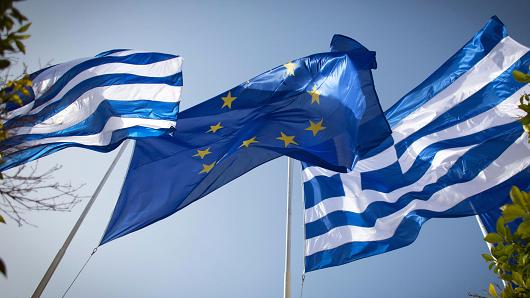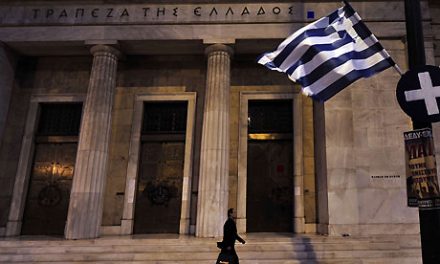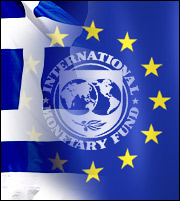By Jass Ubhi
Two things of importance have recently occurred. The yield on Greek bonds has reached a new low (though, just in time to participate in a potential bear market) and the Syriza led government has enacted measures likely to secure the next tranche of euros. With the Greek economy heading towards achieving 2.5% growth YoY in 2018 and hopefully ending its Sisyphean 10-year cycle of bailouts this summer, the economy is starting to look ripe for foreign investment.
As Q4 2017 approached, things were starting to look up. Either because, as some have thought, after almost 10 years of crisis we’ve reached Greece-fatigue with comparatively lesser news coverage or because, as some notable commentators (such as Deutsche CEO John Cryan or American ambassador to Greece Geoffrey Pyatt) have argued, conditions are genuinely ameliorating.
With return linked to risk, the lowering of the Greek bond yield (which has fallen from more than 7% at the start of the year to 3.92% at the time of writing) is the market’s way of telling us that the outlook is improving.
Equity markets in Greece aren’t doing too shabbily either: Athens Composite Index (ASE: ATH) is up 32.24% at the time of writing, compared to last year. On one hand, it’s tempting to ignore the performance of the index. After all, since the shares have started trading again following the 2015 debacle, most of the companies included in the index – Greek banks, largely – had nowhere to go but up. On the other, reports on Greek industry are surprisingly positive, with the latest IHS PMI report on the region conveying high confidence in the sector and the ‘most marked growth in over nine and a half years’.
The reportage of the past few weeks has been centred on the possibility of Greece exiting its bailout successfully this August, on what it would take to do that and even what success might look like. This past Monday, amongst a furore of protests, the Syriza government moved to enact several fiscal and industrial reforms aimed at hopefully bringing Greece more in line with the criteria of its debtors (more here) in hopes of securing its next tranche of monies.
The vehemence of the protests (with some claiming new quorum rules on strikes are akin to slavery) seems to be inversely correlated with efficacy: Prime minister Tsipras and Finance minister Tsakalotos must surely be looking ahead to Monday the 22nd and up towardsmitteleuropa in hope of approval. Whether this is a democratic stance to take is irrelevant, and with the party having a mandate to rule until 2019, they are surely gambling on a return to borrowing at European market levels and financial normalcy without too many stringent conditions. It’s a gamble, yes, but a politically expedient – and perhaps even an astute – one.
Greece offers a tempting arena for investment, but it will take more than access to the European purse to improve things, especially if SMEs and startups – surely an indicator of health in any economy – are to get off the ground. Gone are the days described in Michael Lewis’ Boomerang with its tableau of incognito meetings in hotels with tax collectors who were reprimanded for being too good at their jobs: taxation in Greece has become stringent enough to seriously affect entrepreneurs:
‘For an employee to receive over 2,000 euros net per month, their employer must pay more to the state – in taxes and contributions – than to the worker. When an employee collects 3,000 euros, their final cost to their employer each month is 7,127 euros, of which 4,134 euros goes to the state (58 percent of the total).’ Source
Even maritime activity, traditionally a staple of the Greek economy, is being affected by these strict taxation measures. Despite stirrings amongst Greece’s nascent venture capital community, Syriza-led Greece is hardly shaping up to be entrepreneur friendly and it may well be that we’re looking at an environment better suited to quick-witted, short-term speculators than investors hoping for long-term growth.
More than money is needed for the kind of recovery and environment beloved by investors.
The minotaur is still in the labyrinth, but perhaps 2018 may just turn bullish.



















